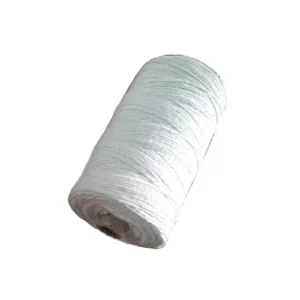Ceramic fiber insulation possesses several key characteristics that make it highly suitable for a wide range of thermal insulation applications. These characteristics include:
- High Temperature Resistance: Ceramic fiber insulation can withstand extremely high temperatures, typically up to 2300°F (1260°C) or even higher, making it suitable for use in environments with intense heat such as furnaces, kilns, boilers, and turbines.
- Low Thermal Conductivity: Ceramic fiber insulation exhibits low thermal conductivity, meaning it effectively reduces heat transfer. This property helps to maintain stable temperatures and conserve energy in industrial processes and equipment.
- Lightweight: Ceramic fiber insulation is lightweight compared to traditional refractory materials like brick or castable refractories. This characteristic simplifies installation and reduces the structural load on equipment and structures.
- Low Heat Storage: Ceramic fiber insulation has low heat storage capacity, meaning it heats up and cools down quickly. This property allows for rapid thermal cycling without significant energy loss or damage to the insulation material.
- Excellent Thermal Shock Resistance: Ceramic fiber insulation can withstand rapid changes in temperature without cracking or spalling. This thermal shock resistance is crucial in applications where heating and cooling cycles occur frequently.
- Chemical Stability: Ceramic fiber insulation is chemically inert and resistant to most chemicals, ceramic fiber insulation acids, and alkalis. This property ensures long-term performance and durability in harsh industrial environments.
- Non-combustibility: Ceramic fiber insulation is non-combustible and does not contribute to fire hazards. It helps to enhance fire safety in industrial settings by providing a barrier against flames and heat propagation.
- Flexible and Formable: Ceramic fiber insulation is flexible and can be easily formed or shaped to fit complex geometries and irregular surfaces. This characteristic allows for customized insulation solutions tailored to specific equipment and structures.
- Low Thermal Expansion: Ceramic fiber insulation exhibits minimal thermal expansion at high temperatures, reducing the risk of thermal stress and maintaining dimensional stability in thermal insulation systems.
- Easy to Install and Maintain: Ceramic fiber insulation is relatively easy to install, cut, and manipulate, reducing installation time and labor costs. Additionally, it requires minimal maintenance over its lifespan, contributing to overall cost-effectiveness.
Overall, the combination of high-temperature resistance, low thermal conductivity, lightweight, thermal shock resistance, chemical stability, and ease of installation makes ceramic fiber insulation a versatile and effective solution for a wide range of thermal insulation applications in various industries.
